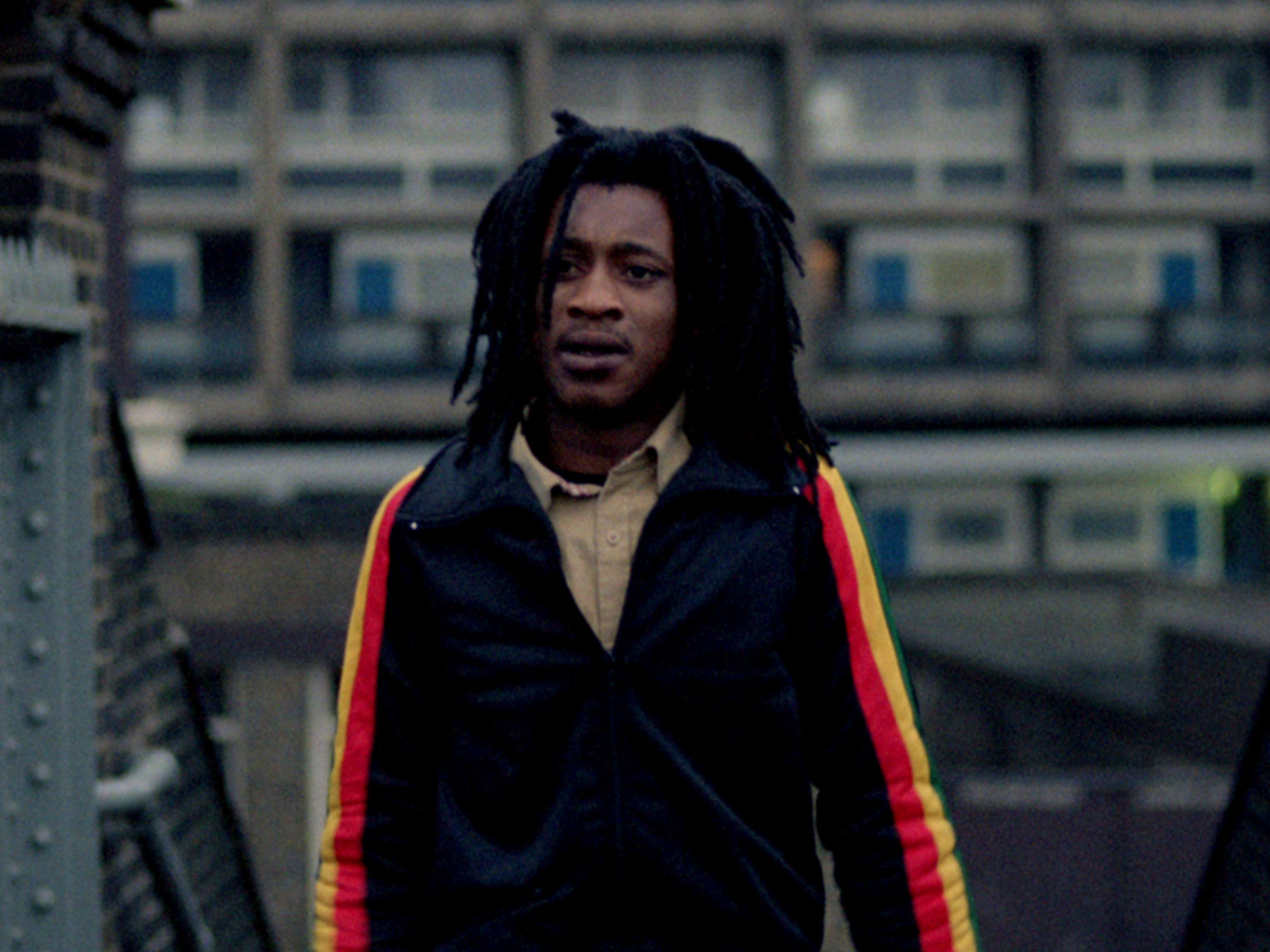
It may seem perverse to begin at the end, but the final sequence of Franco Rosso’s 1980 film, Babylon, demands instant attention. The setting is a grubby dance hall in south London, packed with gyrating black bodies, a temporary sanctuary from a world rife with aggression and acrimony.
Bopping in front of the DJ, eyes closed and in a moment of interior revery, is party latecomer Blue (Brinsley Forde, erstwhile vocalist of Aswad), a budding dub-reggae MC who wields the mic in a way which instantly galvanises the room. Yet we know this moment of ecstasy will be short-lived.
The function of art is often defined as a form of escape, and in this heady moment, Blue is escaping from a reality which ekes closer by the second – the result of both his hot-headed actions and a society in which racial bigotry is the norm.
Rewind a few scenes, and we follow Blue making his way across town to the dance hall. He hunches in the corner of a tube train, surveying his fellow passengers with a measure of barely-concealed disdain. But there’s also a sense of fear, of a world that’s crumbling in on him, like so many of the desolate building lots that litter the landscape.
Forde is utterly magnetic in these moments. He has completed the transition from a harried, if generally carefree and easygoing mechanic to a man who is unable to comprehend where his future lays. There were few open doors of opportunity to start with, but they are now all closed to him. They are locked shut.

Rosso’s film, which screens in the US for the first time ever at Brooklyn’s BAM Cinematheque, is one of the best about the cultural tensions enflamed by Margaret Thatcher’s reign of terror. We talk glibly now about notions of “everyday racism” to cite examples of insidious bigotry, yet Babylon captures an early iteration of this problem, where racism is a routine, like eating breakfast or going to work.
And to turn the other cheek is in itself a veiled insult. Racial epithets litter everyday speech, as seen early on where Blue’s oleaginous garage employee (Mel Smith, perfectly cast) resorts to the type of language that would likely have him arrested now.
The loose-leaf story follows Blue and his Ital Lion crew as they scratch together the materials for a thumping sound system. Dodgy geezers throw them a few notes for pilfered electronics, while Archie Pool’s gangster-like Dreadhead argues in thick patois with tinpot music moguls for the latest cuts from Jamaica. There is no moral relativism when it comes to how Rosso and co-writer Martin Stellman view the gang’s larky criminal shenanigans – there is a sense that these reckless men are unknowingly contributing to their own damnation.
Yet, the system they exist within serves to embolden a white establishment already trigger happy when it comes to tormenting and bullying the black community. And this is not helped by the surrounding miasma of patriarchal oppression, homophobia and a younger generation in dangerous thrall to their mischievous, misbegotten elders. The film is more interested in depicting the dismal cycle of violence than vocally pointing fingers and any one person or group, and that is central to its greatness.
Released in the US in a new restored version, it offers a chance to view the bustling high streets, dingy back-alleys, tumbledown snugs and smoke-clouded nightclubs of Brixton, Deptford and environs with renewed clarity. While it’s hard as a Londoner to suppress nostalgic feelings about this lost landscape, the film’s political message has, unfortunately, not calcified into the past.
More than ever, it’s painfully easy to understand why Blue would feel the urge close his eyes and lose himself in the pulsing rhythms of the room.
Babylon opens at BAM on 7 March before touring select cities. For more info visit bam.org
The post Babylon (1980) appeared first on Little White Lies.
![Forest Essentials [CPV] WW](https://s3-us-west-2.amazonaws.com/pcw-uploads/logos/forest-essentials-promo-codes-coupons.png)
0 comments